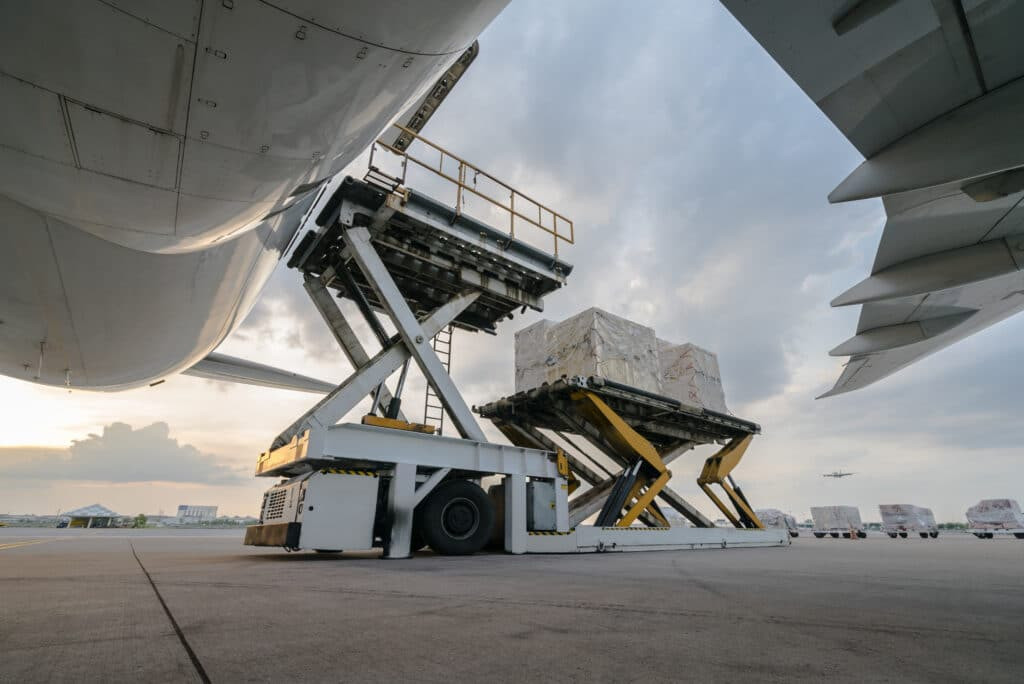Accelya is on a mission to build a better air travel and transportation future. For decades, the software provider has worked with the world’s leading airlines to drive profitability, predictability, and consistency, making the booking and management processes as easy as the flight.
READ: Air France-KLM selects Accelya’s Cargo Revenue Accounting
Specifically looking at the cargo sector, Accelya has found that the industry is still heavily reliant on manual processes that are slow, error-prone, and lack visibility. Legacy technology, limited e-commerce capabilities and outdated systems restrict digital adoption among airlines.
These challenges meant that airlines often lacked visibility across the shipment lifecycle, making it impossible to control distribution and optimise operations. So, Accelya created a solution. In 1995, they launched an integrated FLX Cargo Platform. Put simply, the platform digitalises the cargo process from offer to settlement – creating a seamless solution to customise offers, control distribution, and maximise revenue. The company’s solution delivers 20% more accurate forecast predictions than traditional algorithms, driving the highest levels of intelligence, predictability, and value across the airline business.
“Our FLX Cargo Platform works as a modular solution, leveraging our connected system to ensure that the same data flows across all stages of the shipment journey – for real-time visibility and control over processes, empowering airlines with the insights needed for reliable deliveries,” Andrew Wilcock, Chief Revenue Officer at Accelya, said.
“Our managed services enable us to act like an extension of our customers, harnessing our platform, processes, and team of airline-focused experts to deliver a tailored package service. Through our continued innovation and dedication to change the cargo landscape, as of today, over a quarter (25%) of global cargo volumes are processed through our Cargo Revenue Accounting solutions.”

Modernise and optimise
Each airline Accelya works with on its cargo solution has a unique goal. For some, it might be to deliver a differentiated product offering while enhancing the customer experience. For others, it’s to accelerate their digital transformation and offer a multi-distribution strategy. What remains the same is how Accelya’s solution digitises every aspect of the cargo supply chain – from offer to settlement – in record time, providing various carriers with greater commercial control, including command over their distribution channels.
“Our FLX Cargo Platform has significantly modernised and optimised airfreight operations. As mentioned, our platform automates manual processes for greater speed, accuracy, and transparency in the airfreight supply chain,” Wilcock explained. “And, because of our technology – alongside the broader transformation of the industry – we’ve seen airfreight become more efficient, profitable, transparent, and innovative.
READ: Digitally transforming cargo handling
“Our solutions accelerate airlines’ journeys towards digital distribution, helping them adopt aggressive omnichannel distribution strategies on top of traditional commercial strategy, helping them grow revenues.
“Our Cargo Revenue Management Solution enables airlines to enhance pricing capabilities, which we’ve seen revolutionise the profitability of operations, adding cost efficiency while increasing the quality of revenue reporting and billing processes.”
Reliable operations
Predictability and consistency are essential in the freight industry. There are several ways Accelya can utilise technology to enhance processes. One example of this is transitioning airline cargo processes to machine learning processes. Utilising advanced analytics tools, the software provider enables airlines and freight businesses to analyse extensive datasets, extracting valuable insights for business decisions.
Another example is through its partnership with Amazon Web Services (AWS), Accelya offers partners cloud-powered innovation and performance proven at scale, enabling businesses to adjust their infrastructure according to changing demands. For higher predictability to meet customer deliverables, they can leverage a Scaled Agile Framework (SAFe) and, like most organisations, are deploying advanced ‘tooling’ to enable their journey towards Continuous Integration, Continuous Deployment (CICD) and DevSecOps.
Finally, through the broad Application Programming Interface (API) catalogue that is available, Accelya makes connections to third parties straightforward, enabling accurate information sharing.
“At Accelya, keeping our technology solutions agile and responsive directly aligns with how we ensure predictability and transparency,” Wilcock stated.
“Technology-driven solutions empower freight businesses in several ways, from enhanced efficiency and productivity to data-driven decision-making. The key is investing in the right technology at the right time.
“Each day, we’re on the phone with airlines talking about challenges, opportunities, market conditions – you name it. We strive to understand emerging requirements through these relationships, incorporating customer feedback directly into our product roadmap.”
Collaborative approach
Accelya’s FLX Cargo platform drives cooperation by allowing air cargo carriers to choose how they interact with third parties. Whether through standard Electronic Data Interchange (EDI) messaging, interfaces or a more modern API connection, beyond this, to foster collaboration for all stakeholders in the supply chain, airlines can see the interactions that have taken place with different third parties for a streamlined process.
Regarding transparency, Accelya’s Service Management solution enables airlines to monitor the full range of their supply chain, measuring performance at every step. By leveraging the solution, the freight industry can meet deliveries as promised while maintaining product integrity and improving service quality.
“If recent disruptions have shown us anything, it’s the importance of adaptability,” Wilcock highlighted.
“As such, pricing and revenue management capabilities make it easy for airlines to react in real-time to global events – adjusting their pricing accordingly. Airlines can directly manage the products sold to customers, managing which distribution channels these products are available on.
“In short, we give the industry complete freedom and flexibility in how they choose to distribute their products, enabling quick decision-making in trying economic times.”



